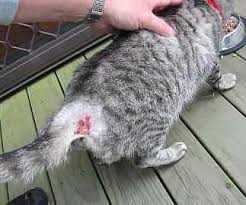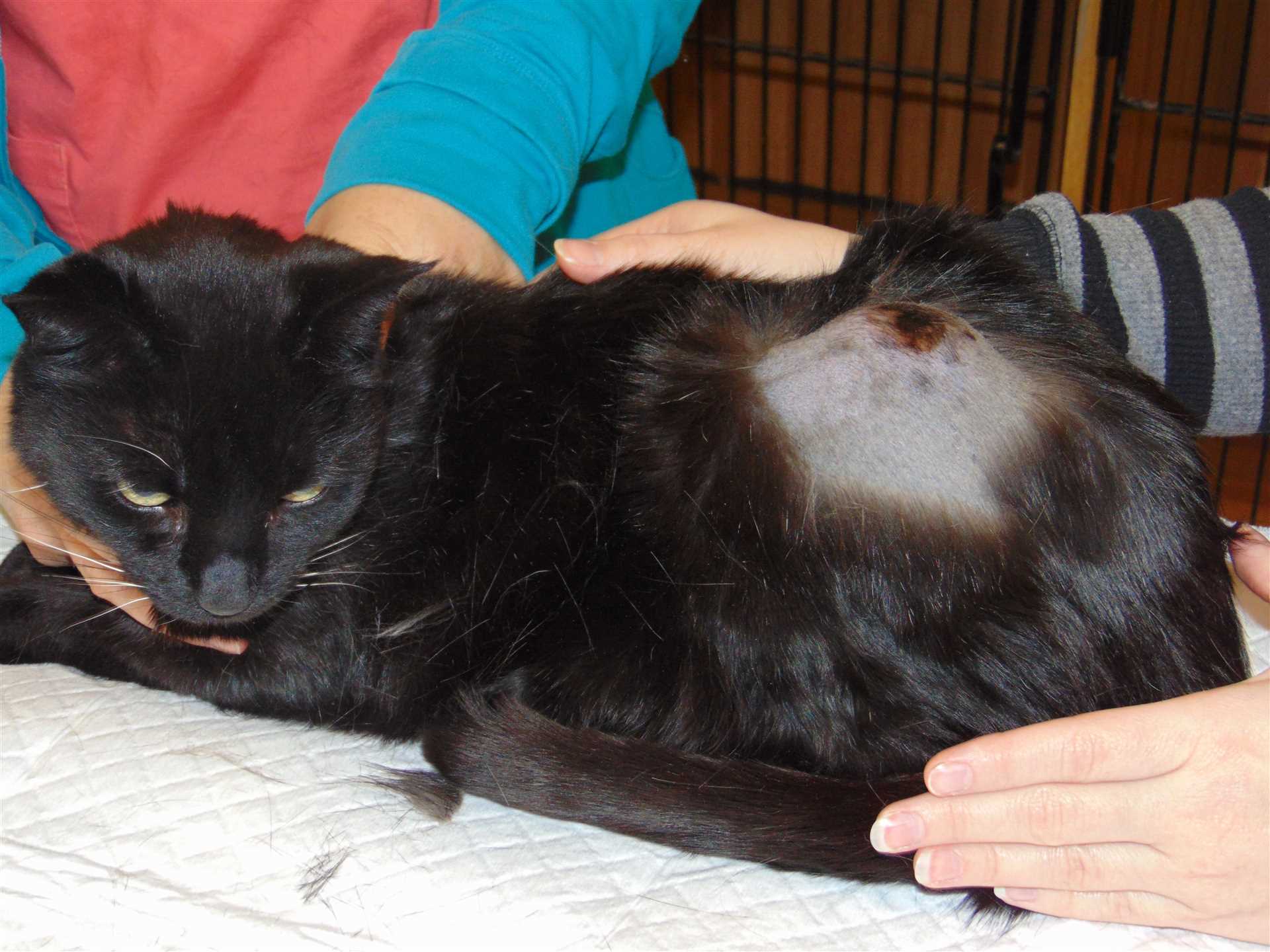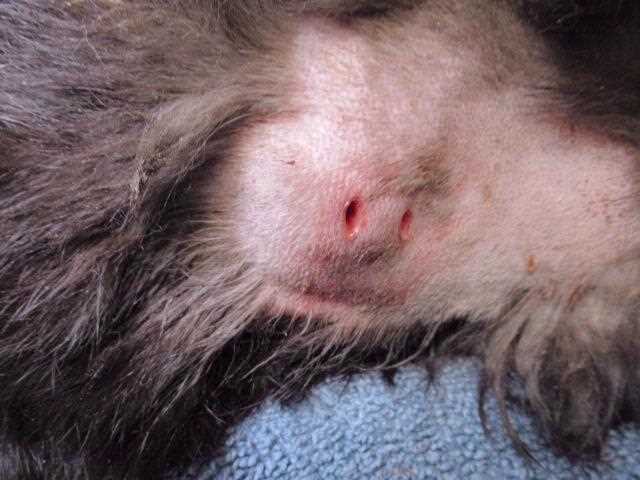To prevent the formation of pus-filled pockets, ensure that wounds are cleaned and treated immediately after any trauma. Regularly inspect your body for any signs of injury, particularly during playtime or outdoor adventures.
These painful swellings often arise from bites or scratches, especially in environments where interactions with other animals occur. Keeping a close eye on social dynamics and intervening in aggressive encounters can significantly reduce the risk of infection.
Inadequate grooming can also contribute to skin infections. As a fluffy Scottish Fold, I know the importance of regular maintenance. Encourage a consistent grooming routine to keep the coat healthy and free from debris that may lead to complications.
If you notice any unusual lumps or signs of discomfort, seeking prompt veterinary attention is crucial. Early intervention can prevent more serious health issues and ensure a swift recovery.
Common Causes of Abscesses in Felines
Injuries from fights rank high on the list of reasons behind skin infections. When I tussle with other animals, sharp claws and teeth can break the skin, allowing bacteria to invade and cause swelling.
Another frequent contributor is bites from other critters. Even a single puncture can become a breeding ground for infection if not treated swiftly.
Abscess formation may also stem from foreign objects, like splinters or grass awns, that penetrate the skin. These hidden invaders can lead to painful situations if they remain unnoticed.
Dental issues can play a role too. Infections from tooth roots can spread, sometimes resulting in swelling on the face or jaw area.
In some cases, underlying health problems may make an individual more susceptible to infections. Conditions that weaken the immune system can lead to recurrent issues.
Lastly, poor hygiene or living in unsanitary conditions can increase the risk of skin infections. Ensuring a clean environment is crucial for maintaining health.
Signs and Symptoms to Watch For
Pay attention to swelling or lumps on my body, especially around the face, legs, or tail. These can indicate an infection brewing beneath the skin. If you notice any redness or warmth in those areas, it’s a clear signal that something isn’t right.
Watch for excessive grooming around a specific spot. I might be trying to soothe discomfort or irritation. If I’m licking or biting at the same location more than usual, it’s time to investigate further.
Fever can be a sign of an underlying issue. If I seem unusually lethargic or disinterested in playtime, it could mean I’m not feeling well. Loss of appetite is another key indicator; if I’m turning away from my favorite treats, something may be off.
Observe my behavior closely. If I’m more irritable or hiding away, it could suggest I’m in pain. Additionally, if I vocalize more than normal, especially in distressing tones, it’s a warning to take seriously.
Lastly, if you see any discharge or pus coming from a wound, immediate veterinary attention is necessary. This is a sign that the situation could escalate if not addressed promptly.
Treatment Options for Feline Abscesses
Prompt veterinary attention is crucial for managing infected wounds. Treatment often begins with a thorough examination and possibly draining the abscess to remove pus and reduce pressure. This procedure typically requires anesthesia to ensure comfort and safety.
Medications and Follow-Up Care

Antibiotics are usually prescribed to combat infection. It’s essential to complete the entire course, even if the symptoms appear to resolve. Pain relief may also be provided to ensure comfort during recovery. Regular follow-up visits help monitor healing and prevent complications.
Nutritional Support

Providing high-quality nutrition supports the healing process. Consider options like the best dental food for cats to enhance overall health. Additionally, assess the suitability of various brands, such as is fancy feast dry cat food good for cats, to ensure optimal nourishment during recovery.
Preventive Measures to Reduce Abscess Risk

Maintaining a safe environment is key. Ensure that play areas are free from sharp objects and potential hazards. Regularly inspect surroundings for any risks that could lead to injuries.
- Regular veterinary check-ups help spot health issues early.
- Keep vaccinations up to date to prevent infections.
- Provide a balanced diet to boost the immune system.
Supervising outdoor activities is essential. Limit access to rough play with other animals and monitor interactions to prevent fights.
Ensure grooming is part of the routine. Regular brushing reduces the risk of skin irritations and helps maintain overall health.
- Check for any wounds or scratches after outdoor play.
- Clean any minor injuries promptly to prevent infection.
- Apply antiseptic if needed and monitor healing progress.
Educate yourself about signs of distress. Early detection of any issues leads to quicker intervention, minimizing complications.
Video:
To prevent the formation of pus-filled pockets, ensure that wounds are cleaned and treated immediately after any trauma. Regularly inspect your body for any signs of injury, particularly during playtime or outdoor adventures.
These painful swellings often arise from bites or scratches, especially in environments where interactions with other animals occur. Keeping a close eye on social dynamics and intervening in aggressive encounters can significantly reduce the risk of infection.
Inadequate grooming can also contribute to skin infections. As a fluffy Scottish Fold, I know the importance of regular maintenance. Encourage a consistent grooming routine to keep the coat healthy and free from debris that may lead to complications.
If you notice any unusual lumps or signs of discomfort, seeking prompt veterinary attention is crucial. Early intervention can prevent more serious health issues and ensure a swift recovery.
Common Causes of Abscesses in Felines
Injuries from fights rank high on the list of reasons behind skin infections. When I tussle with other animals, sharp claws and teeth can break the skin, allowing bacteria to invade and cause swelling.
Another frequent contributor is bites from other critters. Even a single puncture can become a breeding ground for infection if not treated swiftly.
Abscess formation may also stem from foreign objects, like splinters or grass awns, that penetrate the skin. These hidden invaders can lead to painful situations if they remain unnoticed.
Dental issues can play a role too. Infections from tooth roots can spread, sometimes resulting in swelling on the face or jaw area.
In some cases, underlying health problems may make an individual more susceptible to infections. Conditions that weaken the immune system can lead to recurrent issues.
Lastly, poor hygiene or living in unsanitary conditions can increase the risk of skin infections. Ensuring a clean environment is crucial for maintaining health.
Signs and Symptoms to Watch For
Pay attention to swelling or lumps on my body, especially around the face, legs, or tail. These can indicate an infection brewing beneath the skin. If you notice any redness or warmth in those areas, it’s a clear signal that something isn’t right.
Watch for excessive grooming around a specific spot. I might be trying to soothe discomfort or irritation. If I’m licking or biting at the same location more than usual, it’s time to investigate further.
Fever can be a sign of an underlying issue. If I seem unusually lethargic or disinterested in playtime, it could mean I’m not feeling well. Loss of appetite is another key indicator; if I’m turning away from my favorite treats, something may be off.
Observe my behavior closely. If I’m more irritable or hiding away, it could suggest I’m in pain. Additionally, if I vocalize more than normal, especially in distressing tones, it’s a warning to take seriously.
Lastly, if you see any discharge or pus coming from a wound, immediate veterinary attention is necessary. This is a sign that the situation could escalate if not addressed promptly.
Treatment Options for Feline Abscesses
Prompt veterinary attention is crucial for managing infected wounds. Treatment often begins with a thorough examination and possibly draining the abscess to remove pus and reduce pressure. This procedure typically requires anesthesia to ensure comfort and safety.
Medications and Follow-Up Care

Antibiotics are usually prescribed to combat infection. It’s essential to complete the entire course, even if the symptoms appear to resolve. Pain relief may also be provided to ensure comfort during recovery. Regular follow-up visits help monitor healing and prevent complications.
Nutritional Support

Providing high-quality nutrition supports the healing process. Consider options like the best dental food for cats to enhance overall health. Additionally, assess the suitability of various brands, such as is fancy feast dry cat food good for cats, to ensure optimal nourishment during recovery.
Preventive Measures to Reduce Abscess Risk

Maintaining a safe environment is key. Ensure that play areas are free from sharp objects and potential hazards. Regularly inspect surroundings for any risks that could lead to injuries.
- Regular veterinary check-ups help spot health issues early.
- Keep vaccinations up to date to prevent infections.
- Provide a balanced diet to boost the immune system.
Supervising outdoor activities is essential. Limit access to rough play with other animals and monitor interactions to prevent fights.
Ensure grooming is part of the routine. Regular brushing reduces the risk of skin irritations and helps maintain overall health.
- Check for any wounds or scratches after outdoor play.
- Clean any minor injuries promptly to prevent infection.
- Apply antiseptic if needed and monitor healing progress.
Educate yourself about signs of distress. Early detection of any issues leads to quicker intervention, minimizing complications.
Video:
To prevent the formation of pus-filled pockets, ensure that wounds are cleaned and treated immediately after any trauma. Regularly inspect your body for any signs of injury, particularly during playtime or outdoor adventures.
These painful swellings often arise from bites or scratches, especially in environments where interactions with other animals occur. Keeping a close eye on social dynamics and intervening in aggressive encounters can significantly reduce the risk of infection.
Inadequate grooming can also contribute to skin infections. As a fluffy Scottish Fold, I know the importance of regular maintenance. Encourage a consistent grooming routine to keep the coat healthy and free from debris that may lead to complications.
If you notice any unusual lumps or signs of discomfort, seeking prompt veterinary attention is crucial. Early intervention can prevent more serious health issues and ensure a swift recovery.
Common Causes of Abscesses in Felines
Injuries from fights rank high on the list of reasons behind skin infections. When I tussle with other animals, sharp claws and teeth can break the skin, allowing bacteria to invade and cause swelling.
Another frequent contributor is bites from other critters. Even a single puncture can become a breeding ground for infection if not treated swiftly.
Abscess formation may also stem from foreign objects, like splinters or grass awns, that penetrate the skin. These hidden invaders can lead to painful situations if they remain unnoticed.
Dental issues can play a role too. Infections from tooth roots can spread, sometimes resulting in swelling on the face or jaw area.
In some cases, underlying health problems may make an individual more susceptible to infections. Conditions that weaken the immune system can lead to recurrent issues.
Lastly, poor hygiene or living in unsanitary conditions can increase the risk of skin infections. Ensuring a clean environment is crucial for maintaining health.
Signs and Symptoms to Watch For
Pay attention to swelling or lumps on my body, especially around the face, legs, or tail. These can indicate an infection brewing beneath the skin. If you notice any redness or warmth in those areas, it’s a clear signal that something isn’t right.
Watch for excessive grooming around a specific spot. I might be trying to soothe discomfort or irritation. If I’m licking or biting at the same location more than usual, it’s time to investigate further.
Fever can be a sign of an underlying issue. If I seem unusually lethargic or disinterested in playtime, it could mean I’m not feeling well. Loss of appetite is another key indicator; if I’m turning away from my favorite treats, something may be off.
Observe my behavior closely. If I’m more irritable or hiding away, it could suggest I’m in pain. Additionally, if I vocalize more than normal, especially in distressing tones, it’s a warning to take seriously.
Lastly, if you see any discharge or pus coming from a wound, immediate veterinary attention is necessary. This is a sign that the situation could escalate if not addressed promptly.
Treatment Options for Feline Abscesses
Prompt veterinary attention is crucial for managing infected wounds. Treatment often begins with a thorough examination and possibly draining the abscess to remove pus and reduce pressure. This procedure typically requires anesthesia to ensure comfort and safety.
Medications and Follow-Up Care

Antibiotics are usually prescribed to combat infection. It’s essential to complete the entire course, even if the symptoms appear to resolve. Pain relief may also be provided to ensure comfort during recovery. Regular follow-up visits help monitor healing and prevent complications.
Nutritional Support

Providing high-quality nutrition supports the healing process. Consider options like the best dental food for cats to enhance overall health. Additionally, assess the suitability of various brands, such as is fancy feast dry cat food good for cats, to ensure optimal nourishment during recovery.
Preventive Measures to Reduce Abscess Risk

Maintaining a safe environment is key. Ensure that play areas are free from sharp objects and potential hazards. Regularly inspect surroundings for any risks that could lead to injuries.
- Regular veterinary check-ups help spot health issues early.
- Keep vaccinations up to date to prevent infections.
- Provide a balanced diet to boost the immune system.
Supervising outdoor activities is essential. Limit access to rough play with other animals and monitor interactions to prevent fights.
Ensure grooming is part of the routine. Regular brushing reduces the risk of skin irritations and helps maintain overall health.
- Check for any wounds or scratches after outdoor play.
- Clean any minor injuries promptly to prevent infection.
- Apply antiseptic if needed and monitor healing progress.
Educate yourself about signs of distress. Early detection of any issues leads to quicker intervention, minimizing complications.







